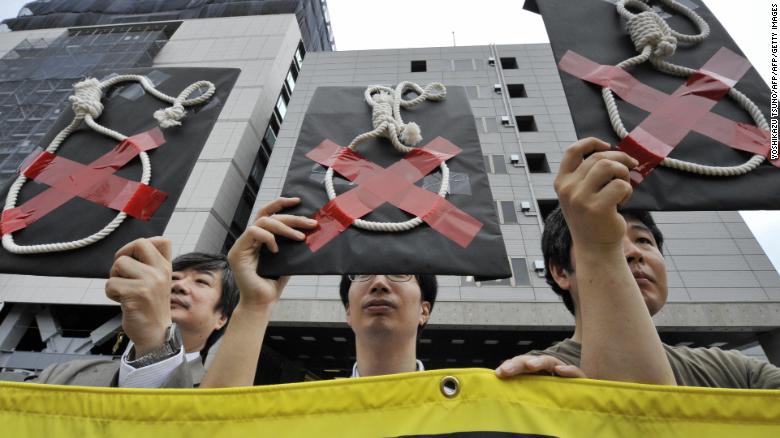
Japan: 2 hanged in first executions of 2019
Two men sentenced to death for multiple murders have been executed in Japan -- the first time the death penalty has been used in the country this year.
Koichi Shoji, 64, and Yasunori Suzuki, 50, were executed by hanging on Friday, taking the total number of executions under Prime Minister Shinzo Abe's government to 38 since he took office in 2012.
"These are extremely cruel cases taking the precious lives of the people who have no faults. I have ordered the execution of death penalty after giving doubly prudent consideration," Justice Minister Takashi Yamashita said.
Executions are done in secret in Japan, with no advance warning given to the prisoner, their family or legal representatives, according to Amnesty International.
Prisoners often only learn of their execution a matter of hours before it takes place.
Capital punishment is usually reserved for those who have committed multiple murders. All executions are carried out by hanging.
Shoji robbed and killed two housewives in Kanagawa prefecture in 2001 together with his girlfriend. Suzuki was charged with robbing and murdering three women in separate assaults within a one month period in 2004.
Japan's Code of Criminal Procedure states the death penalty should be implemented within six months of the sentence being issued, but that is almost never the case.
The controversial system made global headlines in July last year when 13 members of the Aum Shinrikyo cult, which carried out the deadly 1995 sarin gas attack on the Tokyo subway, were executed.
Japan and the United States are the only two developed democracies to have capital punishment. About 170 states have either abolished or put a stay on executions since the United Nations General Assembly called for a universal moratorium on the death penalty in 2007.
Last year, the country's Federation of Bar Associations called for Japan's system of capital punishment to be abolished by 2020.
